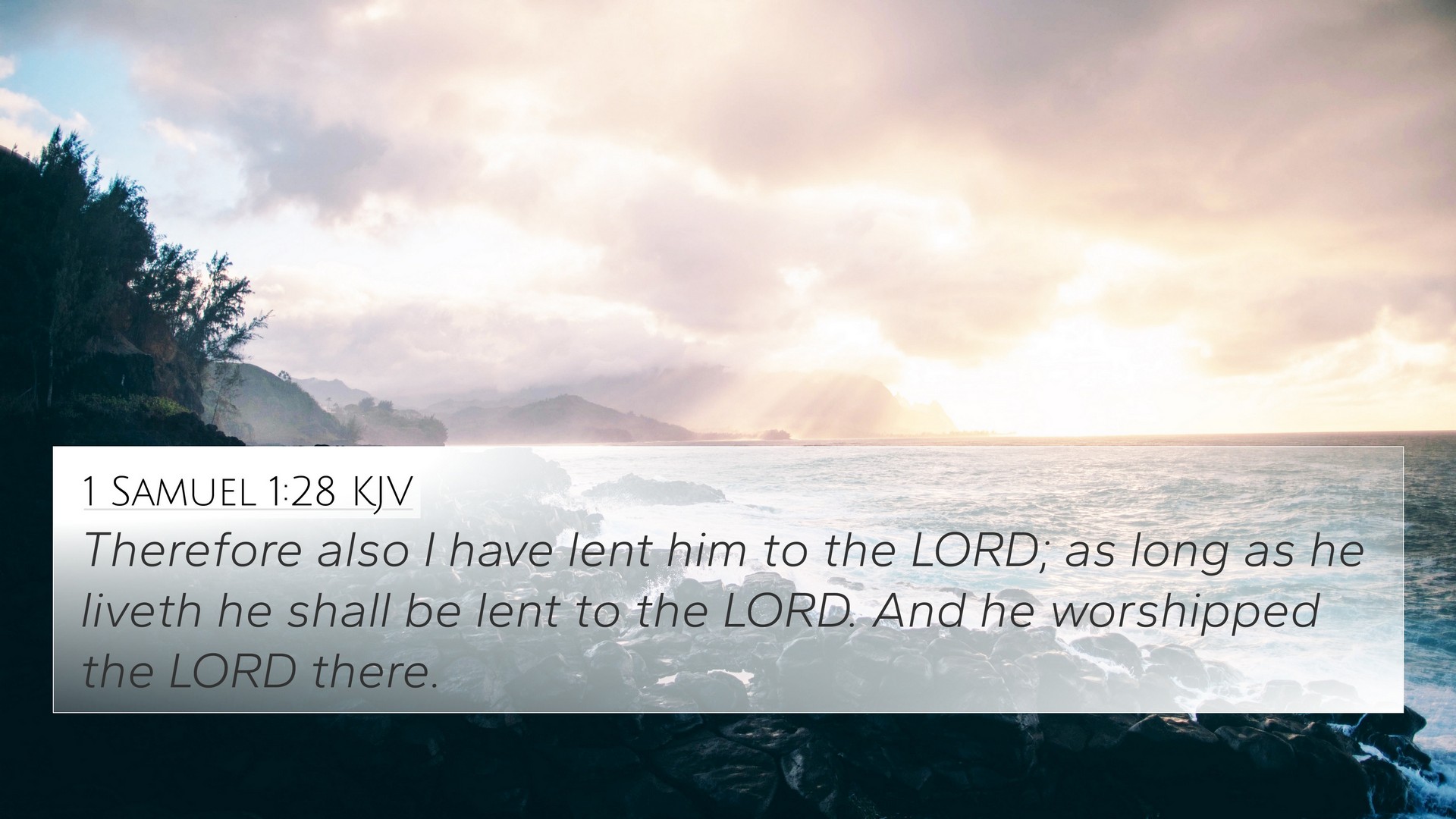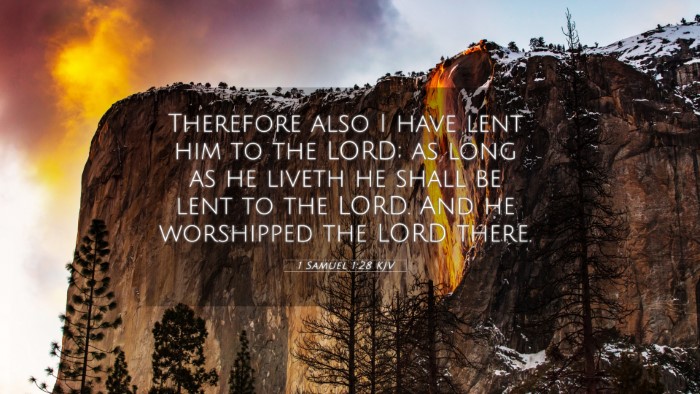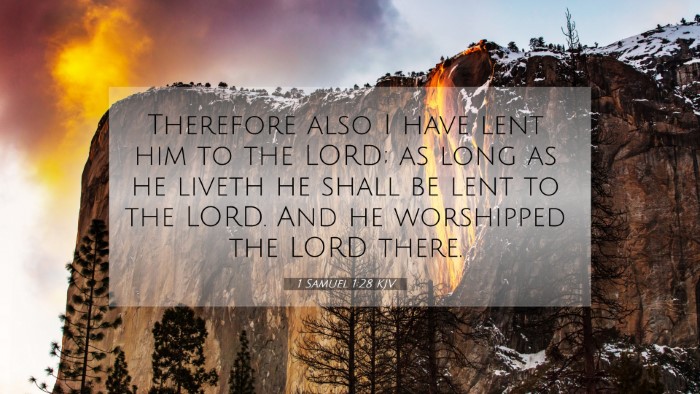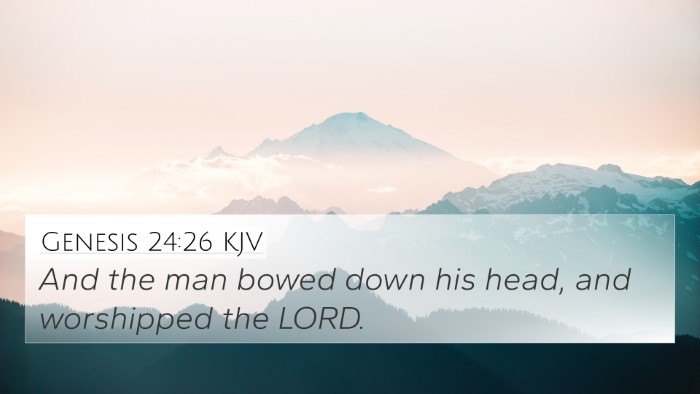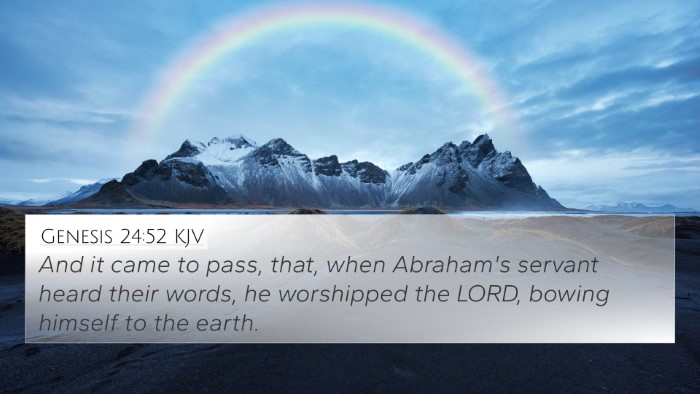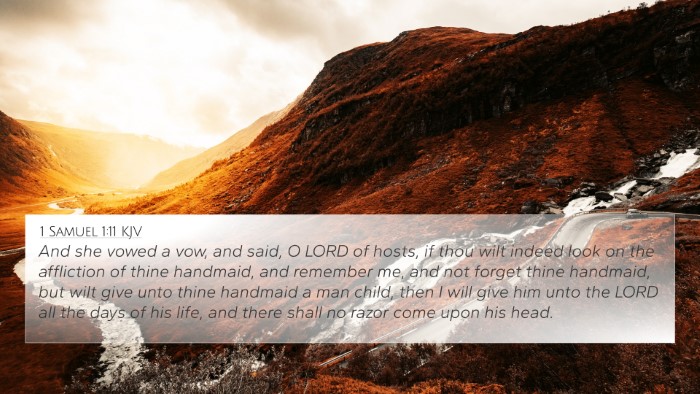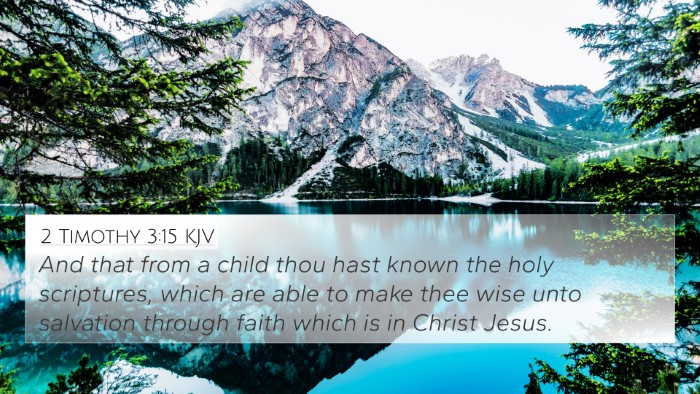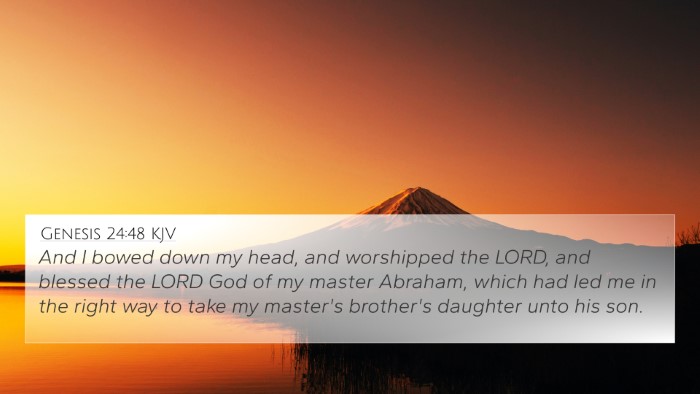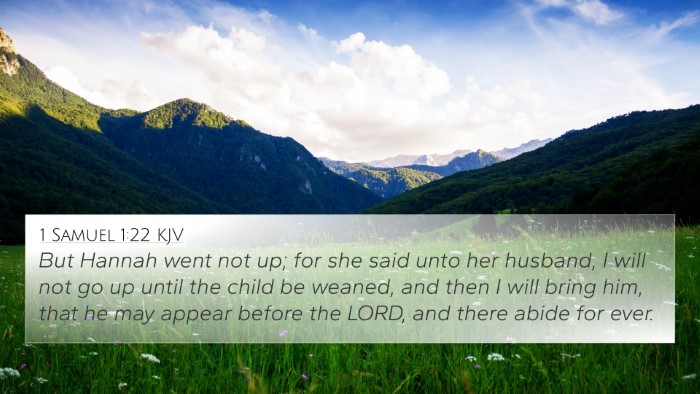Understanding 1 Samuel 1:28
1 Samuel 1:28 states: "Therefore I have lent him to the LORD; as long as he liveth he shall be lent to the LORD." And he worshipped the LORD there. This verse encapsulates the fulfillment of Hannah’s vow to God regarding her son, Samuel. Below, we explore the meaning and thematic connections of this verse through insights from respected public domain commentaries.
Verse Meaning and Interpretation
This text holds significant theological and personal implications, illustrating themes of faith, dedication, and worship. The act of 'lending' Samuel to the Lord demonstrates Hannah's deep commitment to God, even at the cost of her maternal instincts. The phrase "he shall be lent to the LORD" indicates a complete surrender of Samuel to divine service.
Insights from Commentaries
- Matthew Henry: Henry emphasizes the nobility of Hannah’s decision, viewing it as a profound act of faith. He highlights that her vow stemmed from her initial barrenness and desperation. Upon receiving Samuel, her promise to dedicate him to God reflects true devotion. The final phrase about worship signifies that she recognized God’s hand in her life, aligning her actions with His will.
- Albert Barnes: Barnes elaborates on the cultural context of dedicating a child to God, explaining that it was a recognized practice in Israel, similar to the dedication of children in modern practices, like confirmation or baptism in some denominations. He notes that this dedication serves as an important example of how parents may prioritize their child’s spiritual mission over earthly concerns.
- Adam Clarke: Clarke focuses on the spiritual implications of ‘being lent’ to the Lord. He considers the joy mixed with sorrow in Hannah's heart as she relinquishes her son to serve God. This reflects the broader scriptural truth that true joy is found in obedience to God, even when it entails personal sacrifice.
Connecting Themes and Cross-References
This verse is interconnected with several significant themes in the Bible, highlighting the importance of dedication to God and the role of parents in shaping their children's destinies through spiritual commitment.
Related Bible Verses
- Exodus 13:2 - "Sanctify unto me all the firstborn, whatsoever openeth the womb among the children of Israel, both of man and of beast: it is mine." This verse illustrates the principle of dedicating firstborns to God, akin to Samuel's dedication.
- Psalms 127:3 - "Lo, children are an heritage of the LORD: and the fruit of the womb is his reward." This reflects the understanding that children are blessings from God, reinforcing the importance of dedicating them to divine purposes.
- Luke 2:22 - "And when the days of her purification according to the law of Moses were accomplished, they brought him to Jerusalem, to present him to the Lord." This New Testament parallel demonstrates the continuity of dedicating children to service.
- Proverbs 22:6 - "Train up a child in the way he should go: and when he is old, he will not depart from it." Here, the importance of guiding children towards God is emphasized, mirroring Hannah's dedication.
- 1 Samuel 3:19-20 - "And Samuel grew, and the LORD was with him, and did let none of his words fall to the ground." This passage shows God's continuing favor upon Samuel because of his early dedication.
- Hebrews 11:11 - "Through faith also Sara herself received strength to conceive seed, and was delivered of a child when she was past age, because she judged him faithful who had promised." This verse connects Hannah’s faith with the experiences of other faithful women in the Bible.
- Matthew 6:33 - "But seek ye first the kingdom of God, and his righteousness; and all these things shall be added unto you." Hannah's decision exemplifies seeking God first, a principle applicable to every believer.
- Romans 12:1 - "I beseech you therefore, brethren, by the mercies of God, that ye present your bodies a living sacrifice, holy, acceptable unto God, which is your reasonable service." The idea of offering oneself and one’s children to God reflects the core of Paul's teaching here.
- 1 Corinthians 7:14 - "For the unbelieving husband is sanctified by the wife, and the unbelieving wife is sanctified by the husband: else were your children unclean; but now are they holy." Acknowledges how parental dedication impacts children spiritually.
- James 1:17 - "Every good gift and every perfect gift is from above, and cometh down from the Father of lights, with whom is no variableness, neither shadow of turning." Emphasizes God's role as the giver of children and our duty to dedicate them back to Him.
Thematic Bible Verse Connections
The themes of faithfulness, sacrifice, and divine blessing encapsulated within 1 Samuel 1:28 resonate throughout scripture. Not only does Hannah's devotion precede Samuel's extraordinary ministry, but it also parallels the greater narrative of God's redemptive plan. This verse encourages believers to examine their own lives regarding the dedication of their families and responsibilities to God.
Tools for Bible Cross-Referencing
For deeper study, one may utilize Bible concordance and Bible cross-reference guides. These resources aid in uncovering bible verse parallels and create a comprehensive framework for understanding scripture. They promote cross-referencing Bible study methods by systematically exploring how different passages relate to one another.
Conclusion
1 Samuel 1:28 encapsulates a profound commitment to God that encourages believers to dedicate their lives and loved ones to divine service. The interpretations gleaned from various commentaries, combined with a rich tapestry of related scripture, provide a robust understanding of this verse. As we engage with scriptural cross-referencing, we are reminded of the interconnected nature of the Bible and the overarching themes of faith, dedication, and worship, prompting us to seek deeper connections between Bible verses and incorporating them into our personal study.
